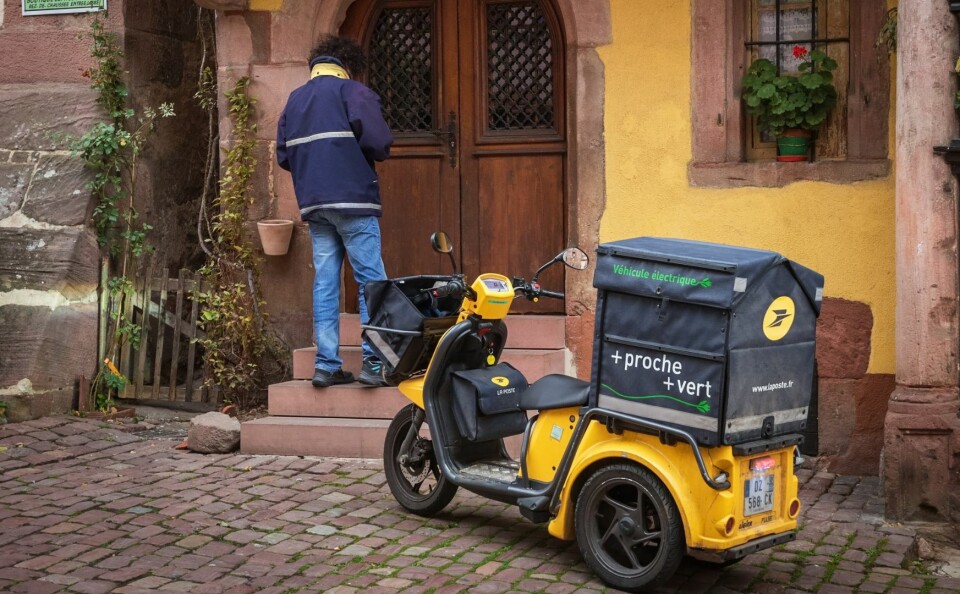-
Which fruits, vegetables and fish are in season in France this April?
Strawberry season begins, compensating for end of winter vegetables
-
Why are drivers in France increasingly getting speeding fines without being ‘flashed’?
Here is why you may have received an unexpected fine in the post
-
Marine Le Pen appeal decision should be given in summer 2026, says court
It comes as the RN leader continues to maintain her ‘innocence’ and right-wing politicians have called her conviction ‘an attack on democracy’
French residents charged huge postage fees on UK parcels - refunds due
We explain how to get a breakdown of the charges, how to spot an incorrect charge and request a refund

Confusion about receiving parcels from the UK and other non-EU countries continues for French residents and postal workers – despite them having almost two years to get to grips with post-Brexit rules.
Readers continue to report being asked to pay taxes and postage fees to receive low-value items, while the difference between VAT and delivery fees is not always made clear.
Read more: Why was I charged for customs and VAT on an Amazon delivery in France?
Customs duty
Customs duty is due only on orders worth more than €150, and will depend on the nature of the product – if you can prove the item was made in the UK, for example, there should be no customs fees.
VAT
VAT, however, must be paid on all products imported into France from a non-EU country, except for gifts worth less than €45.
Until July 2021, VAT was due only on items worth more than €22, but an EU-wide change, unrelated to Brexit, abolished that exemption.
The standard VAT rate is 20%, although reduced rates apply to certain products, such as books (5.5%).
Other charges
Tax is calculated using the value of the item, which includes customs duty, delivery and insurance.
When ordering online, it is important to check the terms and conditions to see whether all VAT is included, or whether you will have to pay when the item is delivered.
Finally, transporters often charge a handling fee for time spent dealing with customs.
Different charges from La Poste and Chronopost
La Poste charges €2 to €5 for these frais de gestion if VAT is paid online in advance (at laposte.fr), or €8 when paid upon delivery.
La Poste confirmed to The Connexion that this should only apply to items where customs duty or VAT are due, and so does not need to be paid for low-value gifts.
Other firms set their own rates. Chronopost, for example, charges €21, even though it is part of La Poste group.
Difficult to get breakdown of charges
These fees apply to all packages sent from non-EU countries, but Britain’s exit from the EU, as well as complications when applying the latest changes, have highlighted flaws within the system.
One complication many readers have pointed out is the refusal of many postal workers to issue a receipt for delivery fees, meaning it is often difficult to understand which fees are being applied.
The postal workers themselves are often just as confused about the rates.
Readers left guessing reason for charges
Victoria Camp was charged €20 to receive a pair of DVDs from eBay in the UK, which had cost a total of £15.
Another reader said her postman demanded €9 in ‘customs fees’ for a single package with four sealed birthday cards inside.
This may be due to the fact that the reader’s mother had forgotten to tick the ‘gift’ box on the customs declaration, and so the appropriate exemption was not applied.
In both cases, recipients were left with little idea about why they had been charged, since no receipts were provided.
Request an explanation or refund
For those seeking information about why they were asked to pay, it is possible to obtain a receipt online after the fact by entering the tracking number here.
If you believe you have been incorrectly charged, it is possible to request a refund by either calling La Poste’s customer service on 3631, or contacting them via email here.
Related articles
French app can earn you €250 a month for accepting neighbours’ parcels
Will the red French stamps I have at home still work after January 1?
Have British newspapers become harder to find in France?
























